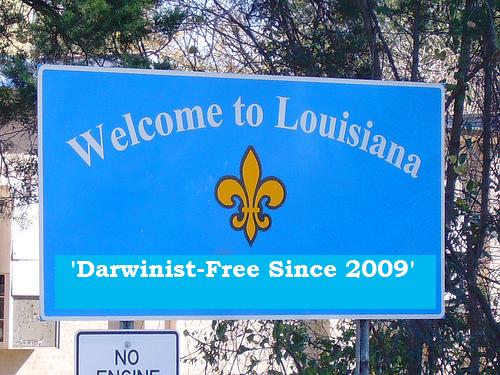Dr. Jerry Coyne is a prominent evolutionary biologist at the University of Chicago. He has written extensively about the Darwinism/intelligent design controversy, and he is highly critical of I.D. Recently in The New Republic, he published a review of two books: “Saving Darwin: How to be a Christian and Believe in Evolution” By Karl W. Giberson and “Only A Theory: Evolution and the Battle for America’s Soul” By Kenneth R. Miller. Dr. Coyne’s review, entitled “Seeing is Believing” is long, and is an fine example of the convoluted arguments used by Darwinists to defend their ideology against the overwhelming scientific evidence that favors design in biology and against the American public who overwhelmingly favor (by a ratio of 3:1) discussion of the strengths and weakness of Darwinism in public schools. Dr. Coyne’s review is, in other words, a fine example of Darwinist ideological distortion of science and endorsement of censorship in education.
So I’ll review Dr. Coyne’s review in detail. I’ll quote Dr. Coyne, then reply.
Early in his essay Dr. Coyne writes:
… the history of creationism in America has itself been an evolutionary process guided by a form of natural selection. After each successive form of creationism has been struck down by the courts for violating the First Amendment, a modified form of the doctrine has appeared, missing some religious content and more heavily disguised in scientific garb. Over time, the movement has shifted from straight Biblical creationism to “scientific creationism,” in which the very facts of science were said to support religious stories such as the Genesis creation and Noah’s Ark, and then morphed into intelligent design, or ID, a theory completely stripped of its Biblical patina. None of this has fooled the courts…
Dr. Coyne misunderstands the history of this issue. Regardless of whether or not creationism has undergone an “evolutionary” process, ID isn’t on the historical continuum with creationism. Creationism is the opinion that Genesis is more or less literally true as science. Many Christians hold to that view, and they have my respect, but I (and the vast majority of I.D. advocates) disagree.
Intelligent design is the opinion that design is empirically detectable in biology, and that it is the best scientific inference to explain many aspects of biology, especially the genetic code and the complex molecular machinery inside cells. I wasn’t a creationist, ever. I was a Darwinist, for most of my life, until I looked closely at the evidence. Most ID advocates have had similar experiences. Most ID advocates were never creationists, and ID is not creationism nor is it derived from it. In fact, ID has been criticized by the creationist community. ID is an appeal to evidence in the natural world, not an appeal to Biblical revelation.
Read More ›






































